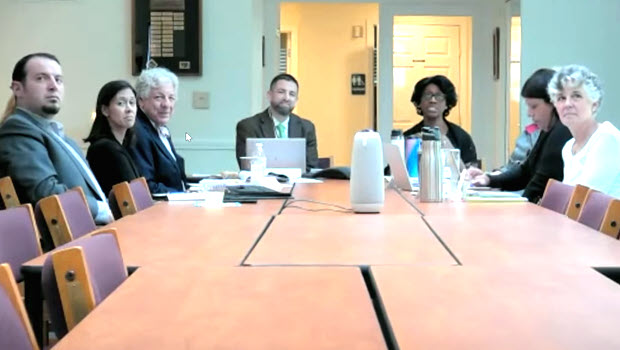Special Education is facing an extreme shortage of teachers in Connecticut, and members of a state task force charged with studying special education services and funding began their meeting today by discussing the reasons behind that shortage. The task force, created through legislation passed by the Connecticut General Assembly, is made up of educators and special education advocates including CEA Treasurer Stephanie Wanzer and Secretary Tara Flaherty.
Education Commissioner Charlene Russell-Tucker told the group, which convened both in-person as well as over Zoom, that, as in any profession, compensation is a big factor in attracting and retaining teachers, but that focusing on the climate in which educators work is also essential.
“People want to feel successful, and if they’re not working in conditions where they can feel successful, they’re leaving,” said Fran Rabinowitz, executive director of the Connecticut Association of Public School Superintendents.
She said that increasing respect for the teaching profession is a vital part of stopping the teacher shortage. “CEA has done a great job of campaigns and having it on TV and everything else, but I think it should be broader than that. I think it should be from the governor on down that there is a yearlong respect campaign for the profession.”
“And part of respect is making sure our educators’ voices are heard, because too many times they’re being told what they should do from folks who don’t understand what it means to do the work,” said Russell-Tucker. “We’re not valuing the voices and the training that is there.”
The severe shortage of special education teachers is taking a toll on students whose needs are going unmet, task force members said.
State Department of Education Bureau Chief Brian Klimkiewicz said that the agency receives complaints from parents about services not being provided for students.
He said that the department has urged districts to be upfront with parents when there are staffing vacancies. “We’ve been vocal about being transparent to parents when services are missed or delayed,” he said. “We’ve heard from people on this council that teachers are taking on extra caseloads and administrators are taking on classes.”
Some members of the task force cautioned that it’s not just about getting bodies in the classroom but about supporting teachers and making sure they’re appropriately trained. When educators teaching under a durational shortage area permit (DSAP) are thrown into a classroom with insufficient support, educators said they may decide against a career in education all together.
“I was a DSAP,” said Wanzer, a special education teacher. “I was a para first before becoming a teacher, so I had that support from Cooperative Educational Services. I had the knowledge because I had worked there for many years.”
She continued, “I know the Teacher Residency Program has started a special ed component, which is fabulous. Why aren’t people going into that? It’s because we’re asking them to already have a degree.”
The state’s Teacher Residency Program allows paraeducators and others who already have bachelor’s degrees to get on-the-job training from experienced educators and take evening classes toward becoming certified educators. However, Wanzer pointed out that many paraeducators who would make excellent teachers do not yet have a four-year degree and no similar programs exist to help non-certified staff earn a bachelor’s degree.
“There are individuals who could be great special education teachers if we could support them in getting a four-year degree,” she said.
Russell-Tucker said there will soon be a group convened by the State Department of Education to do the hard work of examining teacher certification in the state and making decisions about how teacher certification can better support a twenty-first century teaching force.
The state’s new special education data management system, CT-SEDS, has been another factor leading to burnout for special education teachers this year.
Flaherty said, “As a parent, it was a little difficult when we first jumped to this system. Are there any plans for some video training or something for parents to access?”
Klimkiewicz said there is now online training for parents on the new IEP.
Acknowledging the problems that still exist with CT-SEDS, Russell-Tucker said, “I’m having a meeting today with the CEO of PCG [the company that developed CT-SEDS]. It’s that important that we’re having that conversation at the highest levels to make sure that we’re providing the support and addressing that issue.”
The next meeting of the Task Force to Study Special Education Services and Funding will take place August 8. Watch a video of today’s meeting.







